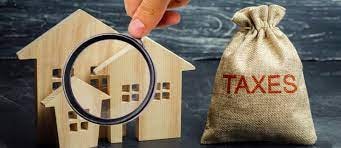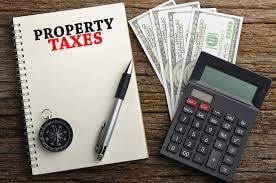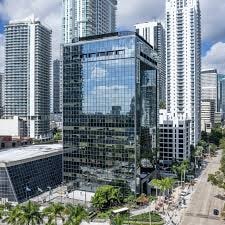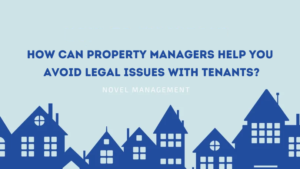As landlords in Miami, understanding property taxes is crucial to your real estate investment strategy. Property taxes are an ongoing expense that can greatly impact your profits and cash flow. It is important to have a clear understanding of how they are calculated and what factors affect them.
In this guide, we will provide you with a comprehensive overview of property taxes for Miami landlords. We will explain the basics of property taxes, including how they are calculated and collected. We will also discuss the various factors that can affect your property tax rate, such as exemptions and assessments.
What are Property Taxes?
Property taxes are taxes paid by property owners to the local government. These taxes are used to fund various public services such as schools, roads, and emergency services. As a landlord in Miami, you are required to pay property taxes on any real estate that you own.
The amount of property tax you need to pay is determined by the local tax authority based on the value of your property. This value is known as the assessed value and it can change from year to year depending on several factors.
Plus, property taxes are calculated by multiplying the assessed value of your property by the tax rate set by the local government. This means that if your property’s assessed value increases, you can expect to pay a higher amount in property taxes.
It is important to note that property taxes are not a one-time payment, but an ongoing expense for landlords. You will need to pay them annually and they can be paid upfront or divided into installments throughout the year.

What Factors Affect Property Taxes?
Several factors can affect your property tax rate as a landlord in Miami. These include:
Location
The location of your property plays a significant role in determining your property tax rate. In Miami, properties located in more desirable areas are likely to have higher assessed values and therefore, higher property taxes.
This is because properties in popular locations tend to have higher market values due to factors like proximity to the beach or downtown areas. As a landlord, it is important to consider the location of your investment property when calculating potential expenses such as property taxes.
Property Value
As mentioned earlier, the assessed value of your property directly impacts your property tax rate. This value is determined by the local government through a process known as property value assessment. Typically, the higher the assessed value of your property, the higher your property tax will be.
It is important to note that property values can change from year to year and may also be affected by renovations or improvements made to the property. Therefore, it is important for landlords to keep track of their property’s assessed value and potential changes that may impact their property tax rate.
Tax Exemptions
As a landlord in Miami, you may be eligible for certain tax exemptions that can lower your overall property tax bill. These exemptions are available for properties used as primary residences, as well as for certain types of properties such as historic homes or properties with green energy features.
To qualify for these exemptions, you will need to apply through the local capital gains tax authority and provide proof that your property meets the necessary criteria. It is important to research and take advantage of any potential tax exemptions that may be available for your investment property.
Special Assessments
In addition to regular property taxes, Miami landlords may also be subject to special assessments. These are additional taxes imposed by the local government for specific services or improvements in a particular area.
For example, if a new highway is being built near your property, you may be required to pay a special assessment for the cost of this construction. It is important to stay informed about any potential special assessments in your area and how they may impact your property tax rate.
So these are the main factors that can affect your property tax rate as a landlord in Miami. By understanding these factors and staying informed about changes, you can better manage this ongoing expense and make more informed decisions for your real estate investment strategy.
How are Property Taxes Calculated?
In Miami, property taxes are calculated by multiplying the assessed value of a property by the tax rate set by the local government. The assessed value is determined through a process called property value assessment, which takes into account factors such as location, size, and condition of the property.
The tax rate can vary depending on the city or county where your property is located. It is important to note that this rate can change from year to year based on budgetary needs and other factors.
Additionally, some properties may be subject to additional taxes such as special assessments or municipal fees. Plus, if you have any tax exemptions for your property, those will also be factored in to determine your final property tax bill.
It is important to keep track of all these factors and stay informed about changes that may impact your property taxes. This will allow you to accurately calculate and budget for this ongoing expense as a landlord in Miami.

Tips for Managing Property Taxes
Here are some tips to help you manage your property taxes effectively as a landlord in Miami:
- Keep track of your property’s assessed value: Monitor any changes in your property’s assessed value to anticipate potential increases or decreases in your property tax.
- Stay informed about local tax rates and exemptions: Research the current tax rate for your area and stay updated on any potential exemptions that could lower your property tax bill.
- Budget for property taxes as an ongoing expense: Be sure to include property taxes in your budget when calculating potential expenses and profits from your investment property.
- Consider appealing your property’s assessed value: If you believe the assessed value of your property is too high, you may be able to appeal it with the local tax authority. This could potentially lower your property tax bill.
- Consult with a tax professional: It may be beneficial to consult with a tax professional who is familiar with local laws and regulations regarding property taxes. They can provide valuable advice and assistance in managing this ongoing expense.
- Keep track of any potential special assessments: Stay informed about any proposed special assessments in your area and how they may impact your pay property tax bill. This will help you plan and budget accordingly.
By following these tips, you can effectively manage your property taxes as a landlord in Miami and make more informed decisions for your real estate investment strategy.
Is it Worth Investing in Miami Real Estate?
Property taxes are just one factor to consider when deciding whether or not to invest in Miami real estate. While high property taxes may seem like a potential downside, there are many other factors that make Miami an attractive location for investors.
For example, the city has a strong and growing economy with a diverse range of industries such as tourism, finance, and international trade. This can provide stability and opportunities for rental income.
Additionally, Miami’s warm climate and beautiful beaches make it a popular destination for tourists and residents alike. This demand for housing can drive up property values and rental rates, providing potential for long-term appreciation of your investment.
Furthermore, Miami’s real estate market has shown resilience in the face of economic downturns, making it a relatively safe and stable investment option. And with a large population of renters, there is a steady demand for rental properties in the city.
How to Get Started with Miami Real Estate Investment
If you are interested in investing in Miami real estate, here are some steps to help you get started:
- Research the market: Before making any investment decisions, it is important to research the current state of the Miami real estate market and gather information about potential properties and neighborhoods.
- Calculate potential expenses and profits: Consider all potential expenses such as owe property taxes, insurance, maintenance costs, and vacancy rates when calculating potential profits from your investment.
- Secure financing: If you require financing for your investment property, research different options and secure a loan that works best for your financial situation.
- Work with a real estate agent: A local real estate agent can provide valuable insights and guidance in finding the right property for your investment goals.
- Consider partnering with other investors: Joining forces with other investors can help mitigate risk and allow you to invest in larger, more profitable properties.
- Stay informed about local laws and regulations: Familiarize yourself with local laws and regulations regarding real estate investments in Miami to avoid any potential legal issues.
By following these steps and staying informed about the various factors that can impact your property tax rate, you can make well-informed decisions and potentially see success in your Miami real estate investment.

FAQs
How are property tax rates determined for Miami landlords?
Property tax rates for Miami landlords are determined based on the taxable value of the property. Florida property taxes are calculated using a property tax equation that considers the assessed value of the property and the local tax rate set by Miami-Dade County.
What is included in a Florida property tax bill for landlords?
A Florida property tax bill for landlords includes the total property taxes owed for the year, any applicable property tax exemptions, and detailed calculations based on the property tax rates. The bill outlines the taxable value of the property and the amount due by the payment deadline.
How does Florida law affect property taxes for Miami landlords?
Florida law affects property taxes for Miami landlords by establishing the rules and regulations for assessing and collecting property taxes. It includes provisions for property tax exemptions, such as the Homestead Exemption, which can reduce the amount of property taxes paid.
Are there property tax exemptions available for Miami landlords?
Yes, there are property tax exemptions available for Miami landlords, such as the Homestead Exemption and other specific exemptions under Florida law. These exemptions can lower the taxable value of the property, thereby reducing the property taxes owed.
How is the property tax calculated for a Miami rental property?
The property tax calculated for a Miami rental property is based on the property’s taxable value multiplied by the local property tax rates. The property state income tax equation takes into account the assessed value of the property and any applicable exemptions to determine the final amount of property taxes paid.
Conclusion
In conclusion, property taxes are an ongoing expense that landlords in Miami must consider when investing in real estate. By keeping track of assessed values, staying informed about local tax rates and exemptions, and budgeting accordingly, landlords can effectively manage this expense.
While high property taxes may seem like a potential downside to investing in Miami, there are many other factors that make it a desirable location for real estate investment. By researching the market, calculating potential expenses and profits, and working with professionals, investors can make well-informed decisions and potentially see success in their investments.




